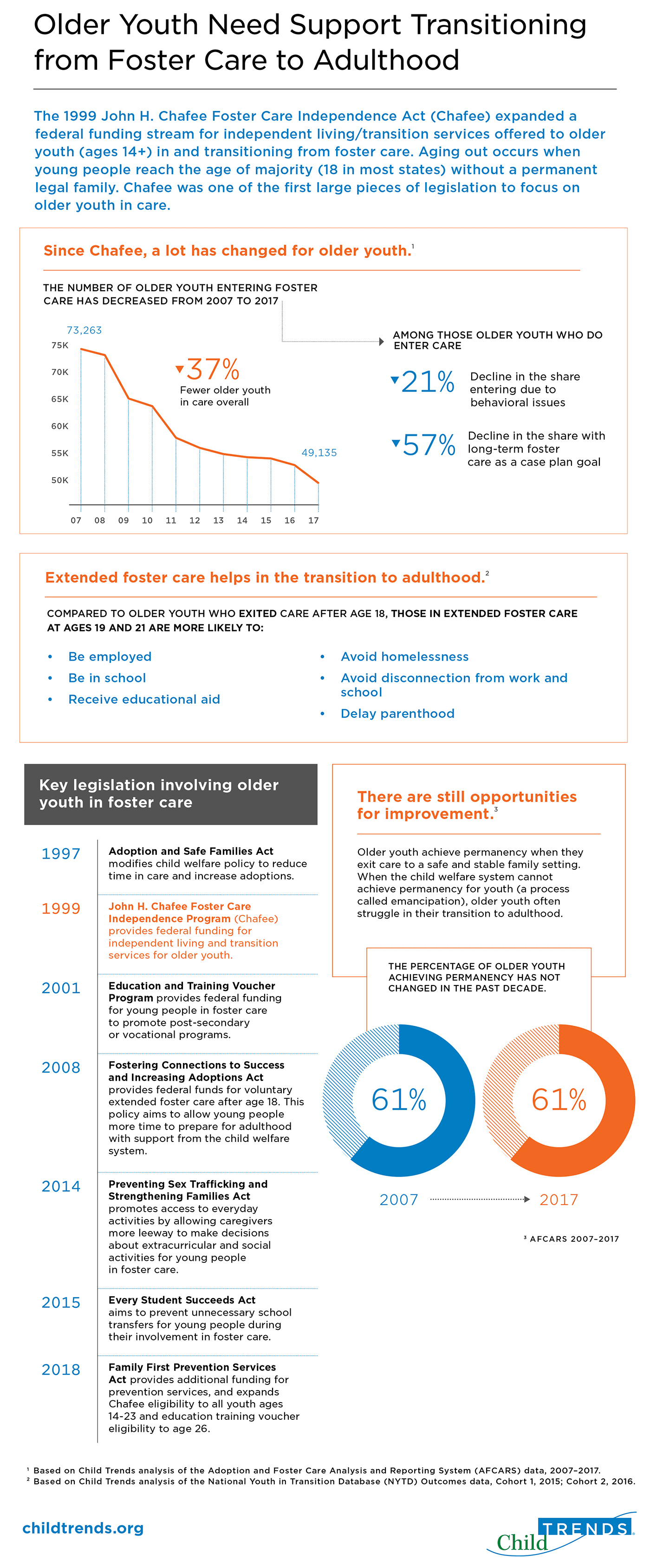Fact Sheet: Older Youth Need Support Transitioning from Foster Care to Adulthood
When young people reach the age of majority (18 in most states) and are still in foster care, they “age out,” meaning that they leave care without a legal connection to a family. To help young people prepare for this transition, child welfare agencies typically provide them with independent living skills (e.g., mentoring, budgeting classes, and educational aid).
The 1999 John H. Chafee Foster Care Independence Act expanded a federal funding stream for independent living/transition services offered to older youth (ages 14 to 23) in and transitioning out of foster care. Additionally, the Fostering Connections to Success and Increasing Adoptions Act allows federal funding for states to provide foster care services to young people ages 18 to 21, if those young people choose to remain in foster care.
This infographic provides information on the experiences of older youth in foster care, a brief overview of outcomes associated with participation in extended foster care, and a policy timeline highlighting child welfare policies involving older youth.

© Copyright 2024 ChildTrendsPrivacy Statement
Newsletter SignupLinkedInThreadsYouTube